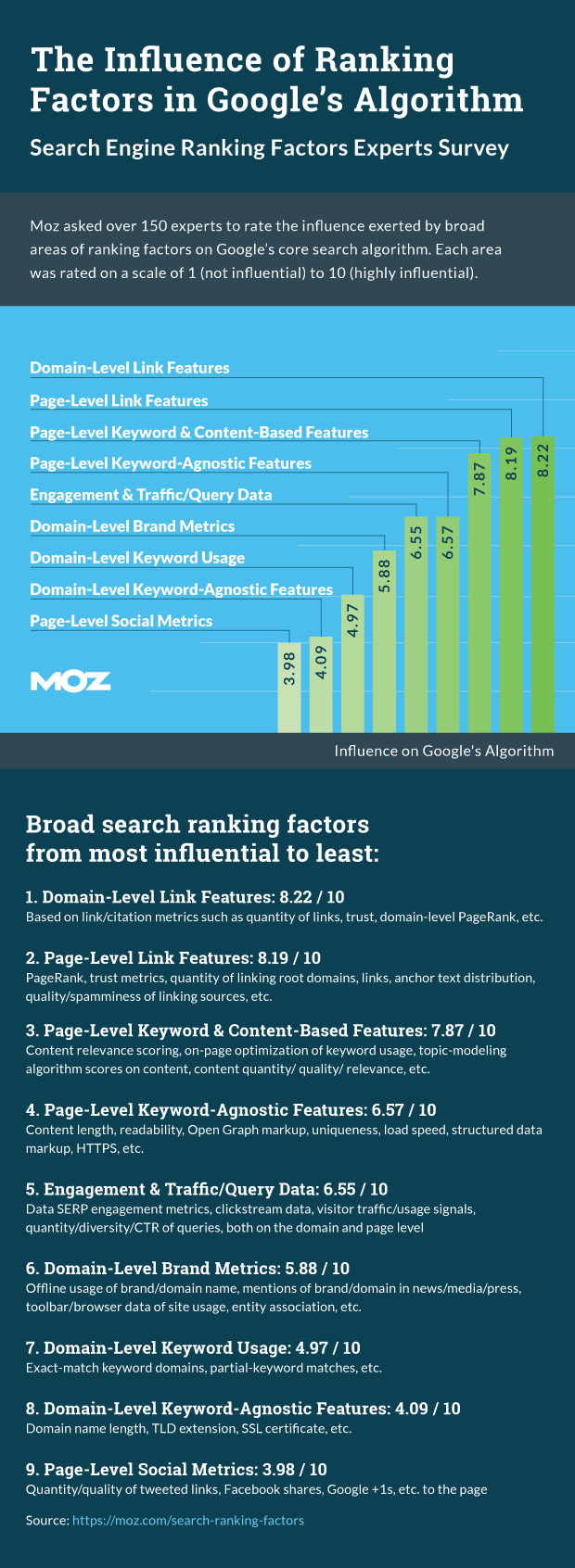Menu
September 18th, 2015
At a high level, search engine optimization simply means doing things that will help a website rank higher in the organic (free) search results for the topics the firm wants to be associated with. The number one (highest) spot on Google wins about 33% of all traffic on a Search Engine Results Page (SERP) for a particular query. That number soars to almost 45% when the searcher's query indicates a specific intent, such as (a simplistic illustration): "buy a television." (Google Organic Click-Through Rates in 2014, Moz.com) For some practice areas, this can mean BIG business.
SEO however is not a stand-alone thing that magically generates all of a firm's clients while the attorneys sit on the couch. SEO augments the broader business building activities (branding, marketing, networking, presenting, client acquisition and client retention plans) a firm does to make a bulletproof practice.
SEO used to be about doing tricky things to a website without actually making the site truly better for the visitor. Common tricks included hiding text on a webpage, stuffing long lists of keywords and cities at the bottom of pages, buying links from brokers in foreign countries and creating many awkward phrases in the content to try and appease search engines. Thankfully, the days of tinkering a website to the top are all but over.
Today, search engines are truly in the business of giving users the best answers to their queries. To rank highly in their free results you have to convince those engines that you deserve that traffic because you will satisfy their customers' requests, which in turn builds more trust in the search engine. In the legal space, this largely means providing more and better content on a topic than the local competition.
Does a Law Firm Need SEO?
On a basic level yes. All law firms need some attention paid to the optimization of their site. At a minimum, they need to show up when someone is searching for them by name. Nothing is worse than developing a website that referrals and existing clients can't find. But, this is pretty basic and ranking for an attorney or firm name should come easily because, unless the attorney shares names with a celebrity, there likely isn't much search competition on a state or local level.
Whether or not a law firm needs more aggressive SEO to rank for broad searches, like "Chicago Divorce Attorney" depends entirely on the firm's practice areas and marketing goals. More about that is on this page. But in short, if a practice area is more consumer oriented and would have had historic success with the Yellow Pages or other traditional media, then yes, there are most likely clients looking online for the services the firm offers.
How is SEO Done?
When Google first began, they created an inventive ranking system that used links from other websites as a system of "votes" to decide which site had more authority (patented here for the technical among you). This system was easily gamed by commissioning countless links to a given website from otherwise meaningless websites often set up solely for the purpose of including such outgoing links. So Google increased the complexity and ranking factors over time. There is a system of best practices — which Google will even share with you — on what they would like to see on your website.
The graphic below highlights the findings of 150 SEO experts on what they see as the top factors for influencing organic search results.
- #1 and #2 has to do with obtaining links from other websites. Because law firms are often smaller, local businesses and not likely to be an internet viral sensation, they don't often have very many links from other sites. Links typically grow naturally over time through community involvement, media mentions, bar memberships, etc. An SEO expert will work to find more opportunities to create links.
- #3 and #4 has to do with the content on the website and this is where the firm has the most direct control because, relative to other activities, publishing more content is easier to do.
- #5 has to do with engagement, when a site shows in the results, is it getting clicked on
- #6 has to do with the prevalence of the firm name/brand on the internet
- #7 and #8 relate to the domain name (.com name) itself, does it contain keywords related to the search, is it a reasonable length, etc.
- #9 has to do with activity on Social Media
In our opinion, the most important focus for SEO should be on high quality content. If a firm produces good content through articles, blogs and newsletters it is more likely to be shared and referenced on other websites and social media. So, focusing on content can have a positive effect on points #1, #2, #3, #4 #5, #6 and #9. If the firm is so specialized that it can have a keyword specific domain name(#7 and #8) then fantastic, but otherwise, the domain name is a relatively low ranking factor.
There are also numerous technical aspects to a website design and content structure that help the search engines see your information clearly. This includes putting the title of your article in a header tag ("How is SEO Done" above is a header tag), browser titles, linking to relevant content, subtle phrasing changes, and submitting your site map to each search engines.
It's also important to note that search engines don't just show organic web pages in their results. They show advertisements at the very top but at an increasing pace, Google and others are showing new types of organic results on the SERPs based on the intent of the user. For attorneys, a useful feature is Local listings, which give results based on physical businesses near the searcher. While similar to the overall website listings, Local results have a different ranking algorithm and a different set of SEO opportunities. Basic local SEO is focused around "citations" to your business — consisting of your Name, Address, and Phone number (NAP) — being consistently published on high-authority sites around the Internet (Yelp, AVVO, 411, YellowPages, etc.). Online client reviews are also very influential, to the chagrin of most attorneys.
How Can You Influence Your Rankings through SEO?
Google and other engines want your site to naturally grow the content and links that prove its high authority, and the search engines are extremely cautious against websites being "too optimized." Using the results from the study above, you can see that the best chance to increase your rankings is produce high quality content that is focused on the topics you want to rank for and finding opportunities to have your website linked from other sites.
The word natural can not be stressed enough. Efforts to game the system are known as "black hat" SEO. With top rankings being so valuable, it can be extremely tempting to buy links and otherwise influence your rankings. Google, for instance, has a severe review process that is more "guilty until proven innocent" once they've penalized you. It can be extremely difficult to regain favor in Google's eyes once they've penalized you, and you will have to purchase another domain and start over. Google has a incredible team of engineers that do not hesitate to drop the hammer on domains that they deem to be tarnishing their own brand. It's not worth it.
Following the best practices and continuing to add high-quality content to your site will not only give you additional keywords to potentially rank for, but increase the authority your site has in Google's eyes.
Should I Pay for SEO?
With Google updating their ranking algorithm around 3 times a day (most changes are unnoticeable, and major changes come every few months), the best SEO techniques are constantly evolving and take a tremendous amount of time to keep up with and implement. For certain practice areas, competition is fierce and the payoffs can be high, think personal injury, family law, criminal defense. However, not all law firms rely on high search rankings for marketing success. Practice areas like business law and government work are more reliant on old fashioned networking and reputation. If your practice areas are a fit for online marketing, then SEO should be an important part of your marketing efforts.
Our primary recommendation is that you should invest in SEO if it fits your practice area but you should not just drain your marketing budget in return for vague assurances that someone is "doing SEO" for you. Whether you choose to invest the time of a staff member or an in-house marketer — or to pay an outside service — you show know:
- What you're investing in (legitimate opportunities for link building? creation of new content? addition of NAP citations on authoritative sites?)
- Whether the person you trust with SEO is up to date on best practices, especially for the particular marketing challenges faced by law firms, and
- How your outlay for SEO is creating a meaningful return on your investment.
The nuances of SEO can be challenging to understand at first, but an SEO professional should be able to reassure you, with explanations and feedback, why what he or she is doing for you is worthwhile. SEO certainly can be, at least in part, a long game; it can take time for content to be indexed by search engines and for your site's authority on given subjects to build up. But you should not get yourself into a position where you're pouring $500 or $1,000 a month into an SEO black hole with no evidence of what's being done for your website or how it is calculated to pay off.
The Modern Firm offers several options for boosting a firms SEO profile. From local marketing to content writing and publishing we can create a plan that fit's a firm's goals and market conditions. Talk to our sales team to learn more.
Categories: Question of the Week






